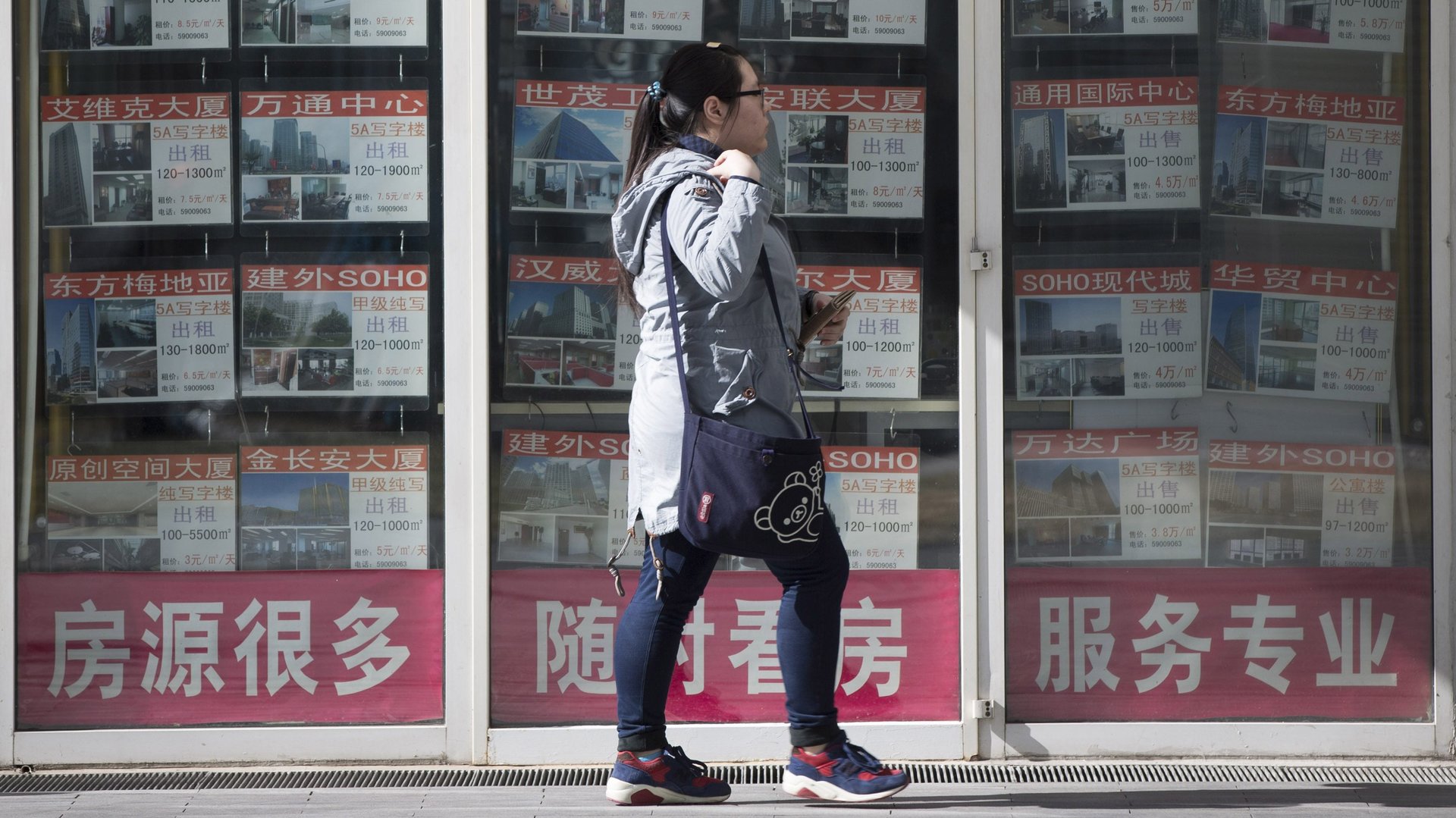China’s WeWork for renters is creating a new batch of internet economy victims
Online platform Danke Apartments was once a rising star in China’s fast-growing flat rental market. Now financial difficulties and a spate of evictions have prompted protests from its tenants and landlords.


Online platform Danke Apartments was once a rising star in China’s fast-growing flat rental market. Now financial difficulties and a spate of evictions have prompted protests from its tenants and landlords.
Danke, whose Chinese name means eggshells, rents flats from landlords on long-term leases. It then slices up and furnishes the units before subletting them. The company, which listed on the New York Stock Exchange in January, gained investor interest by positioning itself not simply as a property management firm, but as a tech company that uses big data and apps to offer a seamless user experience.
Danke serves a class of tenants riding high on China’s booming internet economy. Fresh graduates and young professionals shut out by the country’s sky-high housing prices have flocked to the platform since its founding in 2015. By March this year, the company reported that it was managing over 415,000 flats in 13 cities.
But in the last week, photos, videos, and posts shared by desperate, angry Danke tenants and landlords have gone viral on China’s Weibo. The cash-strapped company has reportedly stopped paying some landlords rental money they had collected from the tenants, in some cases prompting landlords to begin evictions. In one video, a woman is seen holding a knife while confronting her landlord who wanted to take the flat back. Other tenants have shared stories of having electricity and water cut off, or having their locks changed. One Danke tenant, who is a participant of a popular music reality show, complained online that his Wi-Fi was cut off, leaving him unable to produce and share his music.
Danke offers discounts to tenants who can pay a year’s rent upfront by borrowing from the company’s partner banks, and pays landlords monthly or quarterly. This model, also adopted by other competitors, gave them cash on hand to invest or to use for expansion, according to Chinese outlet the Economic Observer. But Danke expanded too fast, recording a net loss of $174.3 million in the first three months of this year. It has not posted more recent quarterly results on its website.
“This [business model] arose out of the government’s desire a few years ago to expand the rental market, which was a good goal,” said Rui Ma, a Chinese tech expert based in Silicon Valley. “However, these methods were abused by many rental platforms. More rigorous regulations only kicked in late last year, with spotty compliance. I think this was a worthwhile experiment but boundaries probably could have been established earlier.”
In addition to the company’s rising depreciation and amortization costs as it signed up more flats to manage, the peak of the coronavirus pandemic in China led to a high vacancy rate for flats, the company said in a statement in February.
The company is the latest in a string of Chinese firms that pumped up user and investor interest with promises to revolutionize a traditional industry using technology, only to come crashing to the ground. Its story calls to mind that of co-working company WeWork, once a startup darling valued at over $47 billion. Its value has sunk to around $8 billion after a failed IPO, with investors put off by the company’s ballooning losses and the antics of its CEO, Adam Neumann.
Before Danke, there were already a slew of players in the industry that had adopted the rental-loan model and went bankrupt because of cash crunches. Danke has the second-largest market share in the industry, and strong funding support from backers like fintech giant Ant Group, raising over $800 million since its founding, according to CrunchBase. The company didn’t reply to a request for comment, but said in a Weibo post on Nov. 16 that “we are not bankrupt, and won’t run away.”
The Chinese government is likely to step in. Ban Yue Tan, a state-owned publication and mouthpiece for the Communist Party, published an opinion piece this week saying the regulators should require companies to open a custodian account to manage the rental money. The article also recommended that partner banks only pay half of the rental money to the platforms directly, reserving the other half for landlords, in order to reduce the risks. Beijing’s housing authorities have set up a team to look into Danke’s situation.
Danke tenants are seen as a much more privileged group than the other participants in the internet economy: migrant workers, or the so-called “low-end population,” most of whom have to stay in storage basements in big cities. While the wealthier class has enjoyed conveniences and opportunities presented by the internet and the flourishing tech scene, it is now falling victim to the boom-and-bust startup world. “The youngsters thought they were the beneficiaries of the internet age, but instead they have become the most helpless tiny shrimps in the capital games,” said a user on Weibo.
Others suggest that the tenants should push back. “My only wish is: the many youngsters living in the numerous Danke flats are not submissive,” said another Weibo user. “The highest authorities have already taught us: this era does not belong to those who are obedient.”